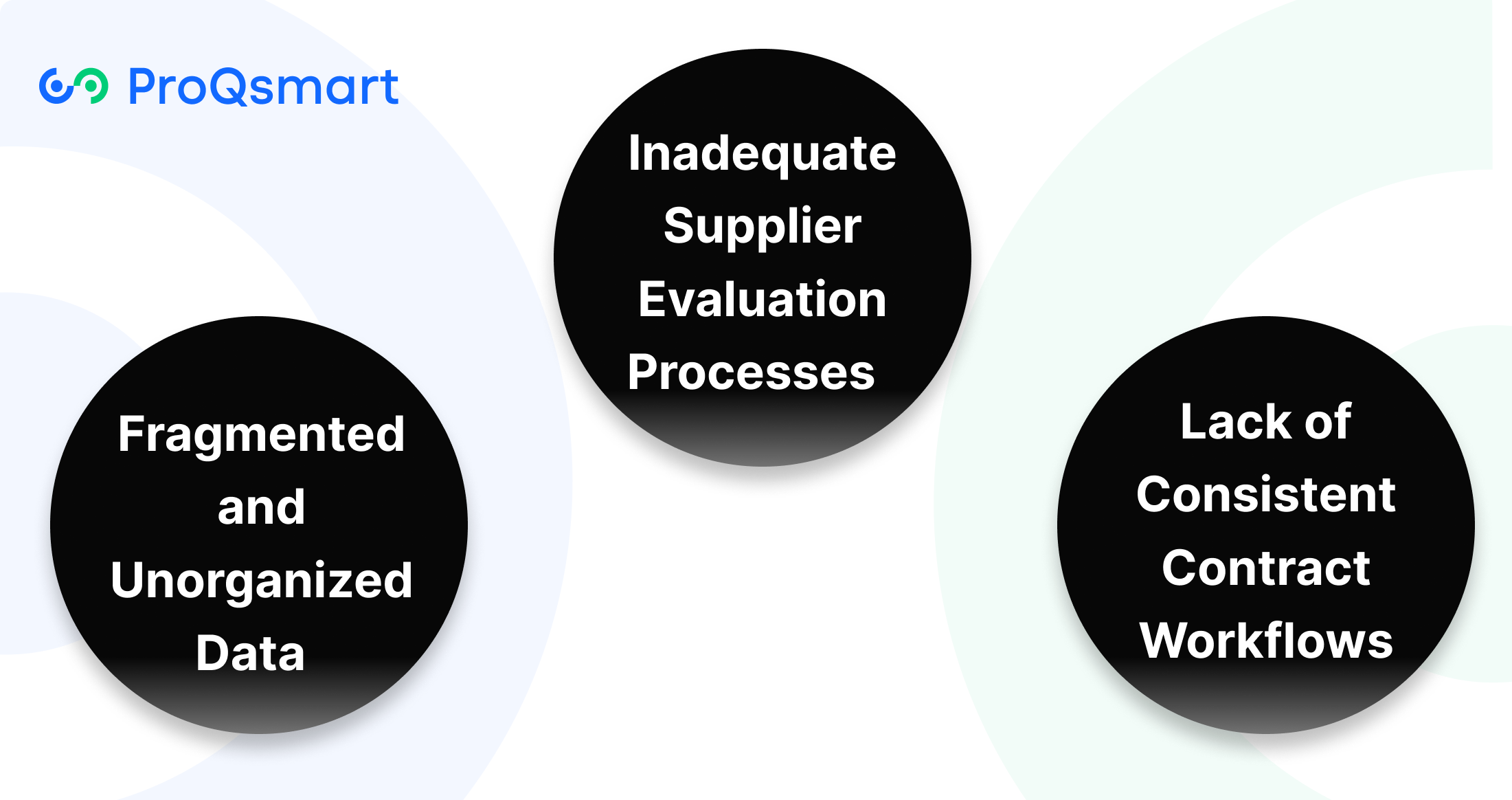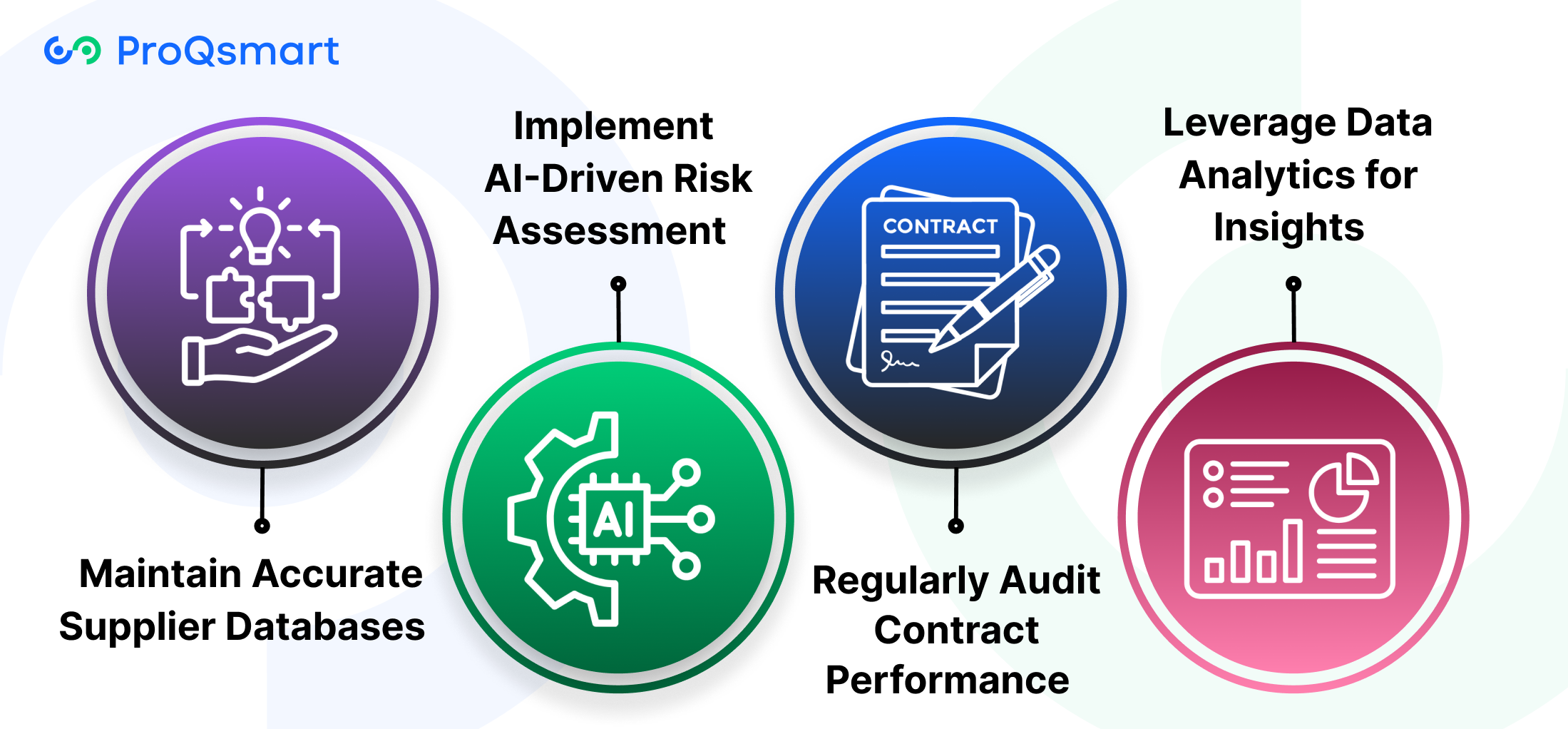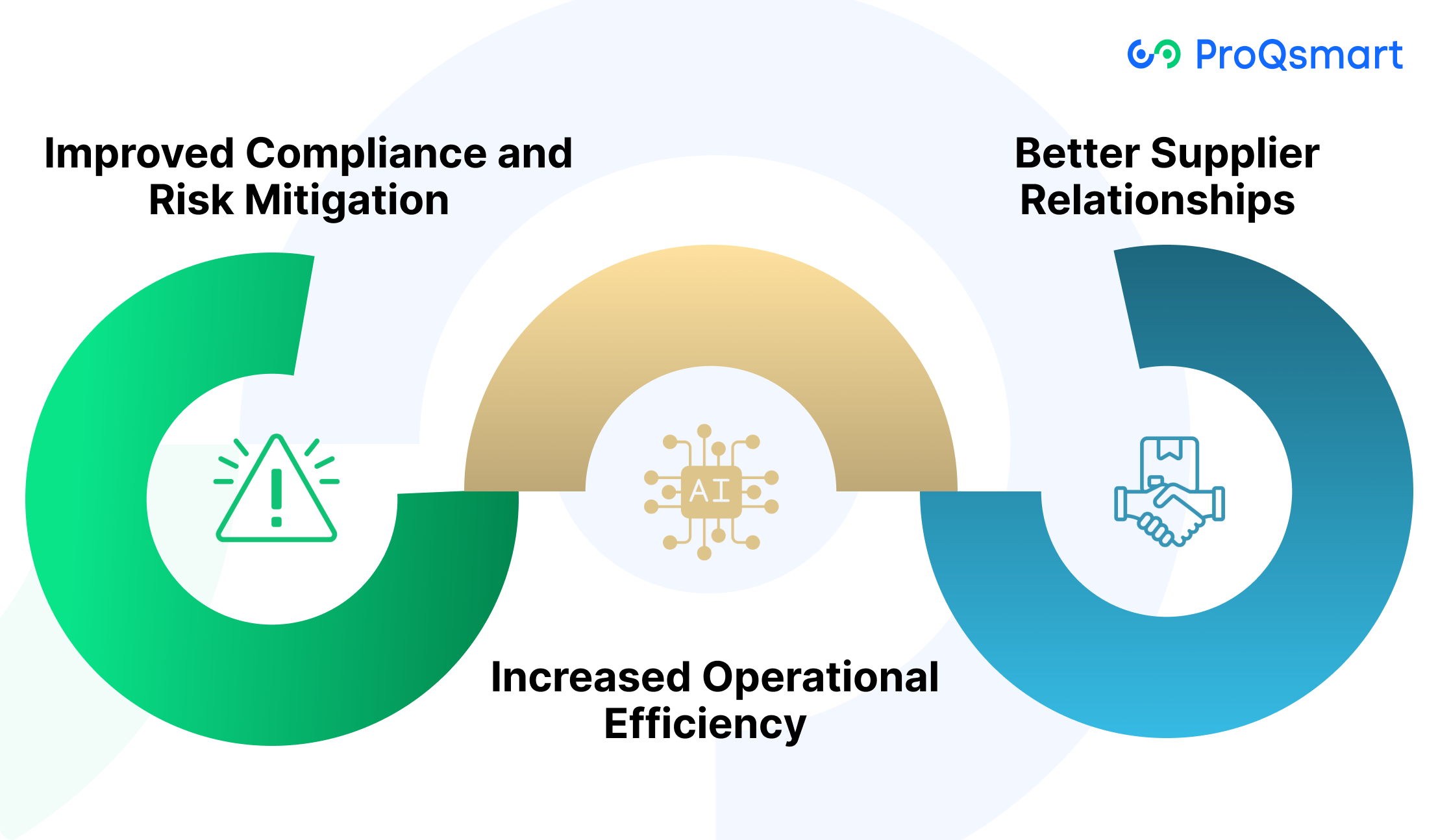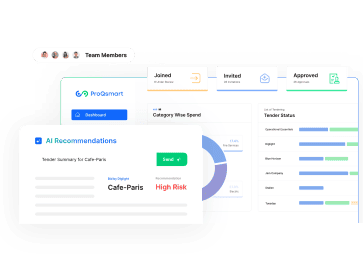Contract management, or contract lifecycle management, is a critical process that governs the creation, execution, and monitoring of agreements to ensure that all parties fulfill their obligations effectively. Beyond its foundational role in managing contracts, CLM drives operational efficiency, mitigates risks, and optimizes supplier value within procurement and supply chain operations.
By emphasizing clear terms, defined responsibilities, and performance tracking, CLM ensures alignment with organizational goals and compliance with regulatory requirements. It addresses common challenges such as missed deadlines, cost overruns, and vendor-related confusion, making it indispensable for businesses aiming to streamline workflows and achieve strategic objectives.
For organizations seeking to excel in procurement or complex industries like construction, manufacturing, hospitality, or interior fit-out projects, effective contract lifecycle management serves as a cornerstone for long-term success and competitive advantage.
Why Contract Management Matters in Procurement
For many procurement professionals, successful contract management is considered the bedrock of the procurement process, often viewed as the fifth step in the procurement cycle. It’s essential to connect contracts to your organization’s mission, vision, and values while maintaining the continuity of operations in managing your supplier network through a robust contract management system.
Automating the contract management process enhances the complex tasks of drafting, negotiating, and monitoring contracts, streamlining workflows and strengthening compliance. Tools like ProQsmart serve as a transformative contract management software, utilizing AI to automate document management and track supplier performance, which encourages transparency and promotes collaboration.
Thorough contract management practices eliminate confusion over contract requirements and deliverables, significantly reducing the risk of misunderstandings while fostering stronger relationships with vendors and ensuring effective contract renewals.
Key Challenges in Manual Contract Management

Manual contract management still poses major challenges that impact your day-to-day operations and bottom line. One of the biggest challenges comes down to the sheer volume of contracts organizations manage. Without these streamlined systems and processes, they encounter unnecessary bureaucracy, costly human errors, and preventable financial loss.
From fragmented data and inconsistent workflows to compliance risks, industries are dealing with challenges that require action.
Fragmented and Unorganized Data
Lack of contract storage leads to missed deadlines and bad supplier management. One example, many Gartner clients confess that they don’t know where their contracts are located, pointing to a need for consolidation.
With a centralized system, supplier data can be accessed by anyone in real-time to make better, faster decisions. Consolidating all obligation data into structured databases ensures ease of retrieval while lightening administrative burdens.
Inadequate Supplier Evaluation Processes
By not properly evaluating suppliers, organizations risk non-compliance and supplier performance. Harnessing AI-powered capabilities can help find and track supplier performancemeasures, making sure they meet commitments defined in contracts.
Consistent updates to supplier evaluation frameworks boost accountability and ensure that standards remain high.
Lack of Consistent Contract Workflows
This lack of standardization results in not just inefficiencies but often duplicative work. Ensuring transparency in contract workflow management through clear guidelines and automation of repetitive workflows saves time and improves accuracy.
Educating teams on uniform processes promotes closer interdepartmental cooperation and a more unified way of working across the organization.
Industry-Specific Contract Management Examples
Every industry comes with unique challenges that require specially developed strategies to maximize efficiency while avoiding non-compliance risks. By tailoring contract management processes to meet the unique demands of their industry, organizations can achieve transformative results.
This strategy results in more efficient operations and improved outcomes.
Construction: Communication and Coordination
In the construction industry, having real-time information that fosters communication between field teams and company management is key. This is why misaligned expectations or overlooked details often result in costly delays. Collaborative technologies like cloud-based project management tools allow for instant changes, promoting efficient collaboration between general contractors, architect teams, and material suppliers.
Frequent project management meetings help to keep the project moving in accordance with the original contract, minimizing the potential for disputes to occur. Documenting all agreements, including change orders, enhances accountability and avoids misunderstandings.
One global conglomerate improved communication and collaboration among stakeholders by establishing clear roles and responsibilities among their contracting teams. This adoption was credited with simplifying project implementation.
Manufacturing: Real-Time Data Access
Manufacturing environments often grapple with challenges in accessing accurate supplier data. Integrated systems that provide real-time visibility can simplify decision-making by maintaining up-to-date supplier information. Digital tools streamline data management processes, enabling businesses to track vendor performance and link contract management to procurement strategies.
Businesses adopting a Vendor Contract Lifecycle Management (VCLM) approach report greater control and efficiency by aligning contract processes with vendor risk assessments. For instance, ProQsmart’s supplier performance monitoring feature ensures compliance with contract terms through regular assessments.
Hospitality: Supply Chain Reliability
Supply chain challenges in the hospitality industry may lead to an inability to fulfill customer orders or expectations. Building strategic relationships with pre-qualified vendors and keeping a constant watch on their delivery is essential. Contingency plans, coupled with tools like ProQsmart’s e-tendering and automated workflows, help mitigate risks and maintain consistency in service delivery.
One organization that took advantage of improved contract management software reported a reduction in contract renewal churn based on automation of essential processes by 20%.
Interior Fit-Out: Standardized Procedures
Interior fit-out projects need comprehensive workflows to quickly huddle contractors and bring them to bear on the project. By standardizing procedures for contract management, your organization cuts down on avoidable inefficiencies and miscommunication.
Project management tools, such as ProQsmart, improve accountability and coordination by automating subcontractor activity management and tracking changes to bills of quantities. With strong alignment between the teams that manage contracts and projects, businesses can realize improved project performance.
How Contract Management Software Helps
Leading organizations are leveraging contract management software to optimize their contracting processes. This indispensable resource is what leads them to unlock strategic insights and avoid risks. By automating complex workflows, approvals, and centralizing all documents, it allows organizations to intelligently manage contracts more efficiently and at a lower operational cost.
ProQsmart was built to address many of these points and help shift the tide of contract management.
Streamline Contract Creation and Negotiation
Templates embedded in contract management software solutions streamline the drafting process using pre-approved, standardized formats to lessen the need for manual input and limit important errors. Digital to the next level by automatically tracking changes, ensuring transparency, and archiving all contract versions for future reference.
By providing structured communication, collaborative platforms encourage productive conversations in real-time, reinforcing negotiations with clarity and focus. Creating standardized rules leads to more efficient processes, conserving both time and money.
Automate Approval Workflows
Automation speeds up contract approval workflows by removing the bottlenecks of manual tasks. Automated notifications for pending tasks keep everyone on track to take action when due, and approval hierarchies provide clarity on who’s made aware of what.
Software offers greater visibility into every contract status in real-time, giving organizations greater control and cutting down costly hold-ups. These features largely eliminate inefficiencies, which are often the root cause of millions of dollars in lost revenue.
Centralize Contract Storage and Access
A centralized contract repository means all of your contracts are stored in one secure, easily accessible location. Cloud-based solutions not only increase security for storage, but increase access remotely.
Storing contracts in a centralized and organized way ensures that retrieval is fast and easy. Controlled access protects sensitive information. This minimizes the risk of a lost contract, a dilemma that 1 in 10 businesses face.
Improve Contract Visibility and Reporting
Easy dashboards and reporting tools provide you with a complete picture of contract performance so you can make data-backed decisions. Routine performance metric reviews allow organizations to improve processes further and cut down on any remaining inefficiencies.
By placing the enhanced visibility into compliance, contract management software has a tangible effect on business growth.
Enhance Compliance and Risk Management
Automated reminders prevent missed deadlines, while analytics identify risks early. ProQsmart improves compliance and reduces risk by tracking contract terms and auditing them.
This minimizes the threat of non-compliance, a revenue risk reported by 57% of businesses as a top revenue hurdle.
Facilitate Collaboration and Communication
Shared platforms enhance the entire contract management process and improve document management while fostering clear communication. ProQsmart’s collaboration features, a popular contract management tool, automatically notify stakeholders, ensuring everyone stays on the same page and projects run more smoothly.
Best Practices for Effective Contract Management

Done well, effective contract management is much more than a paper trail. It is foundational for improving operational efficiencies, minimizing risks, and enhancing relationships with suppliers. By embracing best practices and utilizing a contract management tool, organizations can improve contract performance and future-proof their procurement efforts.
Maintain Accurate Supplier Databases
Keeping a current supplier database is extremely important for smooth contract implementation. Conducting regular audits of your supplier information can go a long way toward scrubbing inaccuracies, which mitigates the risk of relying on outdated information.
A centralized digital repository within your Contract Lifecycle Management (CLM) platform ensures all supplier data is easily accessible and securely stored. Digital tools such as ProQsmart help streamline this process to maximize efficiency.
They standardize and automate data management workflows and simplify the delivery of real-time updates on supplier performance. ProQsmart’s supplier performance monitoring featuregives you the power to effectively evaluate your suppliers. It assists them in evaluating adherence to contract requirements and promotes accountability.
Implement AI-Driven Risk Assessment
AI-powered tools are invaluable for proactive risk management. By analyzing supplier performance metrics and compliance data, AI identifies potential risks early, allowing businesses to make informed decisions.
Integrating AI solutions, like those offered by ProQsmart, into contract processes enhances decision-making, streamlines workflows, and ensures regulatory compliance. For instance, ProQsmart’s risk assessment capabilities help businesses align procurement with budgets while minimizing disruptions caused by supplier non-performance.
Regularly Audit Contract Performance
Continuous performance-based evaluations deliver meaningful data for improved supplier accountability and delivery of dollars under contract. Establishing a recurring audit schedule makes sure performance data is always being analyzed, laying the groundwork for more well-informed negotiations in the future.
CLM tools, by providing up-to-the-minute KPI visibility, empower businesses to quickly spot emerging trends and determine smarter contract strategies to avert business-impacting contract missteps.
Leverage Data Analytics for Insights
Data analytics help us change the raw metrics into great insights. By regularly tracking KPIs and creating or generating contract performance reports, businesses can use data-backed insights to set goals for continual optimization of contract results.
ProQsmart’s analytics tools enable organizations to identify trends, measure the impact of supplier performance, and achieve millions in savings.
Measuring the ROI of Contract Management Software

Organizations should take a hard look at the return on investment (ROI) of any contract management tool. This analysis is critical to ensure a successful contract management process that delivers the greatest financial and operational value.
Improved Compliance and Risk Mitigation
This is why contract management software is essential to ensuring compliance and reducing risk. Since it automates tracking and flagging contracts against regulatory requirements, you can be confident that your contracts are compliant with all required regulations.
Tracking compliance rates as an early measure enables organizations to ensure a transparent record of these gaps and save time, money, and stay compliant in the future. Contract management software can alert users to impending breaches or deadlines, protecting the organization from expensive violations.
Frequent review of compliance metrics increases accountability and hones executive decision-making.
Increased Operational Efficiency
Automated workflows take the pain out of processes, cutting out unnecessary manual tasks and saving your team hundreds of hours. For instance, ProQsmart uses an AI-driven platform to streamline document management and monitor procurement budgets in real time.
Measurable improvements tracking metrics, like time saved in creating and managing contracts, track progress in tangible ways. Operational efficiency improvements lead to savings and more efficient employee resource allocation.
Better Supplier Relationships
As we said earlier, strong supplier relationships are crucial to achieving business success. Tools such as ProQsmart’s supplier performance monitoring and collaboration features support transparency, building trust and reliability to ensure everyone is on the same page.
Measuring satisfaction through effective feedback mechanisms deepens those relationships, creating value over the long-term.
Conclusion
Contract management is a critical component of procurement, ensuring streamlined processes, reduced risks, and stronger supplier relationships. By addressing challenges such as missed deadlines, cost overruns, and disorganized workflows, effective contract management aligns procurement activities with organizational goals. It not only simplifies complex tasks but also enhances compliance and operational efficiency.
The adoption of advanced contract management tools has transformed the way businesses handle agreements. Features like automated workflows, centralized repositories, and real-time tracking enable organizations to eliminate manual errors, improve visibility, and make data-driven decisions. These tools empower teams to focus on strategic objectives while ensuring contracts are executed efficiently.
ProQsmart stands at the forefront of this transformation, offering AI-powered solutions tailored to industries like construction, manufacturing, hospitality, and interior fit-out projects. By leveraging ProQsmart’s capabilities, organizations can streamline contract workflows, reduce costs, and enhance collaboration across teams.
Explore how ProQsmart can revolutionize contract management processes. Book a demo today to experience smarter procurement solutions designed for long-term success.




